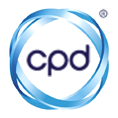-
 All Courses
All Courses
-
 Business Administration
Business Administration -
 Chemical Engineering
Chemical Engineering -
 Communications and Public Relations (PR)
Communications and Public Relations (PR) -
 Compliance and Legal
Compliance and Legal -
 Contract and Project Management
Contract and Project Management -
 Customer Experience and Relationship Management
Customer Experience and Relationship Management -
 Energy and Sustainability
Energy and Sustainability -
 Finance and Accounting
Finance and Accounting -
 Health, Safety and Environment
Health, Safety and Environment -
 Hospitality & Tourism
Hospitality & Tourism -
 Human Resources and Talent Development
Human Resources and Talent Development -
 Industrial Manufacturing and Production
Industrial Manufacturing and Production -
 Innovation and Artificial Intelligence (AI)
Innovation and Artificial Intelligence (AI) -
 Leadership and Management
Leadership and Management -
 Oil and Gas
Oil and Gas -
 Procurement & Supply Chain Management
Procurement & Supply Chain Management -
 Quality and Productivity
Quality and Productivity -
 Retail and E- Commerce
Retail and E- Commerce -
 Sales and Marketing
Sales and Marketing -
 Sports Event Management and Operations
Sports Event Management and Operations -
 Strategy and Business Planning
Strategy and Business Planning -
 Sustainability and CSR
Sustainability and CSR
-
 Learning Solutions
Learning Solutions
 About Us
About Us
 iLearn Blog
iLearn Blog
-
 Directory Calendar
Directory Calendar
 Contact Us
Contact Us
-
 All Courses
All Courses
-
 Business Administration
Business Administration -
 Chemical Engineering
Chemical Engineering -
 Communications and Public Relations (PR)
Communications and Public Relations (PR) -
 Compliance and Legal
Compliance and Legal -
 Contract and Project Management
Contract and Project Management -
 Customer Experience and Relationship Management
Customer Experience and Relationship Management -
 Energy and Sustainability
Energy and Sustainability -
 Finance and Accounting
Finance and Accounting -
 Health, Safety and Environment
Health, Safety and Environment -
 Hospitality & Tourism
Hospitality & Tourism -
 Human Resources and Talent Development
Human Resources and Talent Development -
 Industrial Manufacturing and Production
Industrial Manufacturing and Production -
 Innovation and Artificial Intelligence (AI)
Innovation and Artificial Intelligence (AI) -
 Leadership and Management
Leadership and Management -
 Oil and Gas
Oil and Gas -
 Procurement & Supply Chain Management
Procurement & Supply Chain Management -
 Quality and Productivity
Quality and Productivity -
 Retail and E- Commerce
Retail and E- Commerce -
 Sales and Marketing
Sales and Marketing -
 Sports Event Management and Operations
Sports Event Management and Operations -
 Strategy and Business Planning
Strategy and Business Planning -
 Sustainability and CSR
Sustainability and CSR
-
 Learning Solutions
Learning Solutions
 About Us
About Us
 iLearn Blog
iLearn Blog Directory Calendar
Directory Calendar
 Contact Us
Contact Us







 Back to search result
Back to search result
 Register Now
Register Now











 01 - 05 Sep 2025
01 - 05 Sep 2025
















 Course Venue
Course Venue